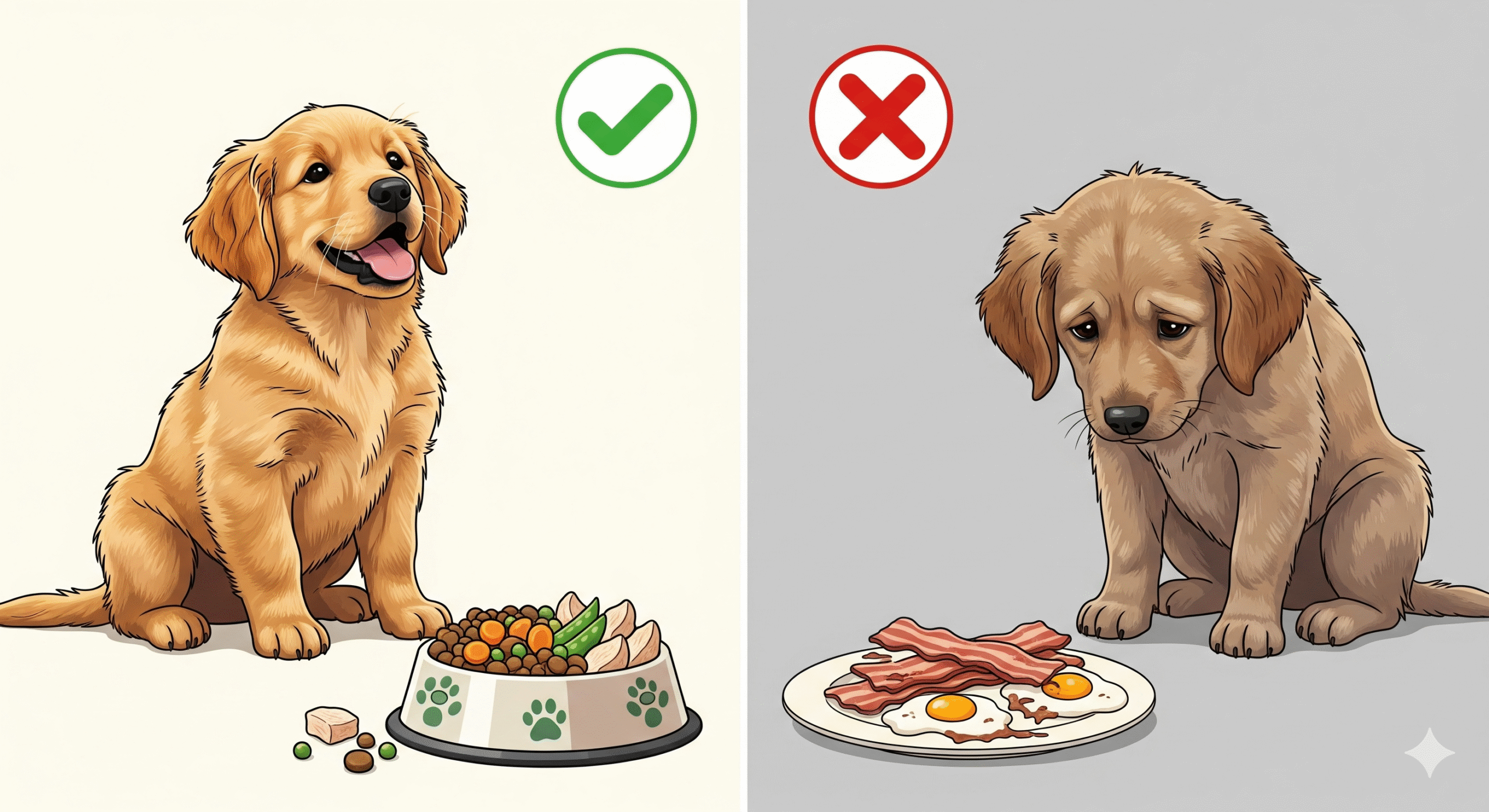Bringing a new puppy into your home is one of life’s most joyful decisions. But before you fall in love with a pair of puppy-dog eyes, a crucial choice lies ahead: adopting vs buying a puppy. This decision is far more than a simple preference; it’s a complex interplay of personal circumstances, financial investment, and profound ethical considerations.
The debate can feel overwhelming, often clouded by strong opinions. This guide aims to cut through the noise, offering a balanced, detailed comparison of both paths. We’ll explore the true costs—both obvious and hidden—and delve into the ethical landscape of animal breeding and shelter overpopulation. Our goal isn’t to tell you which choice to make, but to equip you with the knowledge to make an informed, responsible decision that aligns with your values and lifestyle.
Understanding Your Two Main Pathways 🛣️
First, let’s clearly define what we mean by “adopting” and “buying,” as terminology matters.
What Does It Mean to Adopt? 🏠
Adoption typically means acquiring a dog from an animal shelter, a humane society, or a breed-specific rescue organization. These animals may be:
- Strays found without owners.
- Surrendered by owners who could no longer care for them.
- Transferred from overcrowded shelters.
- Rescued from puppy mills or neglectful situations.
The core mission of these organizations is to find loving homes for animals in need. When you adopt, you are not purchasing a product; you are providing a home and often directly saving a life.
What Does It Mean to Buy? 🧾
Buying a puppy usually refers to acquiring a dog from a breeder. However, not all breeders are created equal. It’s critical to distinguish between two very different types:
- Responsible Ethical Breeders: These breeders are dedicated to improving the breed, prioritizing health, temperament, and conformation. They perform extensive health testing on their breeding stock, raise puppies in their home with early socialization, and offer lifelong support to puppy buyers. They are a resource and advocate for their dogs.
- Backyard Breeders & Puppy Mills: These are the sources to avoid. Backyard breeders breed dogs without the necessary health testing or ethical considerations, often for profit or accidental litter. Puppy mills are large-scale commercial breeding facilities that prioritize profit over the well-being of the animals, often keeping them in inhumane conditions.
The choice isn’t simply “adopt or buy,” but rather “adopt from a shelter” or “source from a responsible, ethical breeder.”
The Financial Breakdown: A Cost Comparison 💰
Understanding the upfront and long-term financial commitment is essential for any potential dog owner.
The Cost of Adopting a Puppy
The adoption fee is often significantly lower than the price of a breeder puppy. This fee typically includes a package of essential services that you would otherwise pay for out-of-pocket:
- Average Fee: $50 – $500 (can be higher for small breeds or young puppies).
- What the Fee Usually Covers:
- Spay or Neuter surgery (a major cost saver).
- Initial vaccinations (DHPP, Rabies).
- Microchipping and registration.
- A basic veterinary exam.
- Deworming and flea/tick treatment.
- Potential “Hidden” or Future Costs:
- Behavioral Training: Some rescue dogs may have unknown histories or require training to overcome past trauma or lack of socialization. Investing in a trainer is a common and worthwhile expense.
- Unknown Health Issues: While shelters treat obvious issues, some genetic or chronic conditions may not be apparent until later in life.
The Cost of Buying from a Breeder
The initial purchase price from a breeder is just the beginning of your investment.
- Purchase Price: $1,000 – $3,000+ (depending on breed, rarity, and breeder reputation).
- What the Price Covers:
- The puppy itself, often from pedigreed parents with proven health testing.
- Extensive early socialization and enrichment.
- Starter pack of food, sometimes a blanket with litter scent.
- A guarantee of health and support from the breeder.
- Additional Costs YOU Are Responsible For:
- All initial veterinary care: Exams, vaccinations, deworming, microchipping ($200 – $500).
- Spay/Neuter surgery: ($200 – $800).
- Potential for High Medical Costs: Even with health testing, genetic conditions can arise. Pet insurance is highly recommended.
Financial Verdict: Adoption wins on upfront cost savings. However, all dogs, regardless of origin, require a significant long-term financial commitment for food, vet care, grooming, and training.
The Ethical Considerations: A Matter of conscience ❤️
This is the heart of the debate for many people.
The Case for Adoption: Saving a Life 🌍
- You Save a Life: The most powerful argument for adoption. By choosing a shelter pet, you directly free up space and resources for another animal in need. You are giving a second chance to a deserving dog.
- You Fight Overpopulation: The US faces a tragic pet overpopulation crisis. Millions of healthy, adoptable dogs are euthanized in shelters each year simply because there aren’t enough homes. Adoption is a direct stand against this.
- You Do Not Support Cruel Practices: Choosing adoption means your money does not support puppy mills or irresponsible backyard breeders who contribute to the overpopulation and suffering of animals.
The Case for Ethical Breeding: Preserving Breeds & Predictability 🧬
- Predictability: Responsible breeders offer a known quantity. You can know the genetic health history of the parents, the expected size, coat type, and general temperament of the breed. This is crucial for families with specific needs (e.g., allergies, a home with children, a specific activity partner like a running buddy).
- Preservation of Breeds: Ethical breeders are stewards of their chosen breed. They work diligently to preserve positive breed traits and health, ensuring these dogs continue to exist for future generations.
- Lifelong Support: A good breeder is a mentor for life. They will provide expert advice on training, health, and care and will insist you return the dog to them if you can no longer provide care, ensuring their dogs never end up in a shelter.
Ethical Verdict: The most ethical choice is to avoid puppy mills and backyard breeders at all costs. The choice between a shelter and an ethical breeder is personal. Adoption addresses an immediate crisis, while responsible breeding aims for a sustainable, healthy future for specific dog breeds.
How to Make the Right Choice for You 🤔
There is no one-size-fits-all answer. Ask yourself these questions:
- What is your primary motivation? Is saving a life your top priority, or is finding a specific breed with predictable traits more important?
- What is your budget for initial costs? Be honest about what you can afford upfront.
- What are your lifestyle needs? Do you need a guaranteed hypoallergenic coat? A specific energy level? A known history with children?
- How much uncertainty can you handle? Are you prepared to work with potential unknown behavioral or health issues that can come with a rescue?
Actionable Tips for Either Path ✅
If You Choose to Adopt:
- Be Patient: The perfect dog for you might not be there on your first visit. Check shelter websites regularly.
- Ask Questions: Inquire about the dog’s known history, observed behavior in the shelter, and any medical notes.
- Consider an Older Dog: Adult dogs often have known personalities and are past the demanding puppy stage, making them fantastic companions.
If You Choose to Buy from a Breeder:
- DO YOUR HOMEWORK: This is the most important step. A responsible breeder will:
- Welcome you to their home to meet the puppy’s parents.
- Show you health testing certifications for both parents (OFA, CERF, etc.).
- Ask you as many questions as you ask them.
- Have a contract that includes a health guarantee and a clause that you return the dog to them if you can’t keep it.
- Avoid Red Flags: Walk away from breeders who have multiple litters available, won’t let you see the facilities, only communicate via email, or want to meet in a parking lot.
The Bottom Line: There is a Right Answer
The “right” choice in the adopting vs buying puppy debate is the one that is made responsibly, with eyes wide open to the costs and ethical implications. Whether you find your perfect companion in the hopeful eyes of a shelter dog or through the careful planning of an ethical breeder, the ultimate goal is the same: a loving, lifelong bond.
The worst choice you can make is to impulsively acquire a dog without considering the source. By choosing consciously, you become part of the solution, ensuring a better life for your new best friend and for dogs everywhere.
**Ready to Find Your New Best Friend?
Have we helped you weigh your options? Share your thoughts or your own adoption/breeder stories in the comments below! Your experience could help another future pet parent make their decision.

Congratulations on Finding Your Perfect Puppy!
By following these steps, you are well on your way to selecting a healthy, happy puppy that’s a great match for your family. Remember, bringing a new dog home is the beginning of a wonderful journey.
What to do next:
Now that you’ve found your perfect pup, make sure your house is ready for them! Prepare for your new arrival by following our essential Puppy-Proofing Your Home: A Complete Checklist.
Looking for more guidance? Read our complete guide on How to Pick the Perfect Puppy from a Litter.






